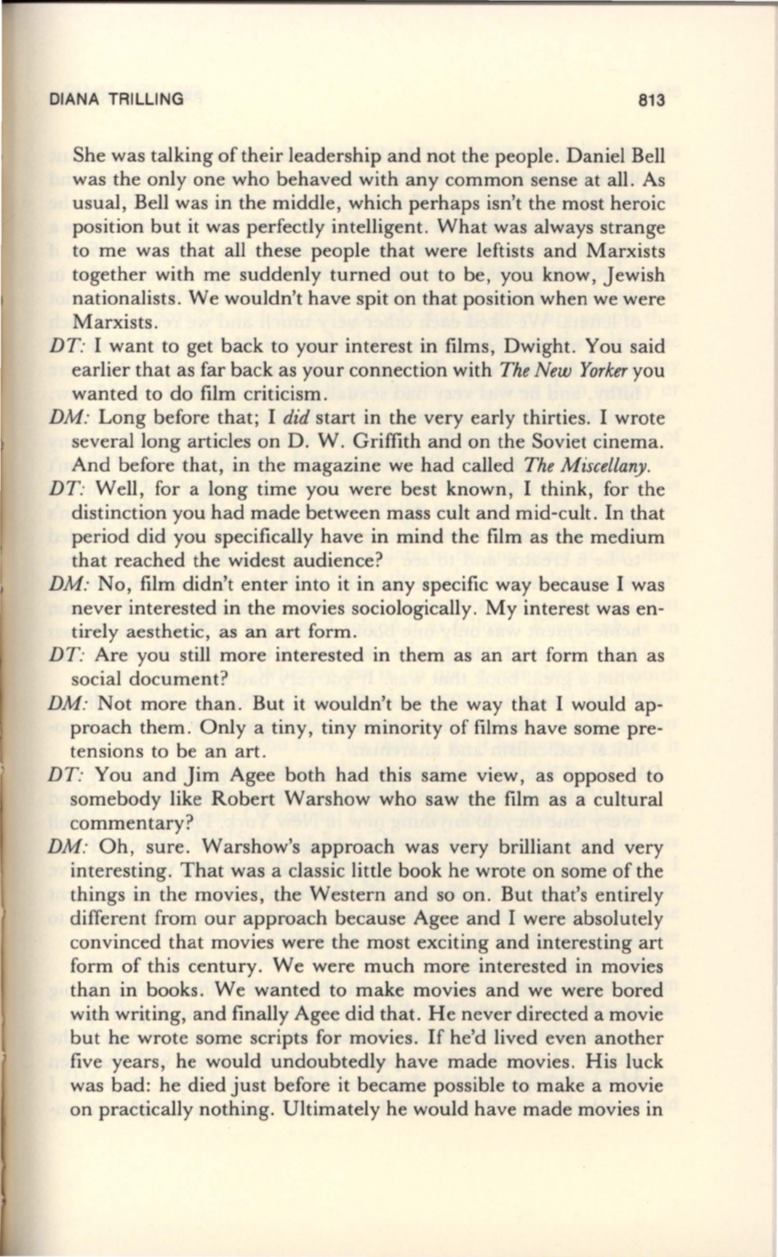
DIANA TRILLING
813
She was talking of their leadership and not the people. Daniel Bell
was the only one who behaved with any common sense at all. As
usual, Bell was in the middle, which perhaps isn't the most heroic
position but it was perfectly intelligent. What was always strange
to me was that all these people that were leftists and Marxists
together with me suddenly turned out to be, you know, Jewish
nationalists. We wouldn't have spit on that position when we were
Marxists.
DT:
I want to get back to your interest in films, Dwight. You said
earlier that as far back as your connection with
The New Yorker
you
wanted to do film criticism.
DM:
Long before that; I
did
start in the very early thirties . I wrote
several long articles on D . W . Griffith and on the Soviet cinema .
And before that, in the magazine we had called
The Miscellany.
DT:
Well, for a long time you were best known, I think, for the
distinction you had made between mass cult and mid-cult. In that
period did you specifically have in mind the film as the medium
that reached the widest audience?
DM:
No, film didn't enter into it in any specific way because I was
never interested in the movies sociologically . My interest was en–
tirely aesthetic, as an art form.
DT:
Are you still more interested in them as an art form than as
social document?
DM:
Not more than . But it wouldn't be the way that I would ap–
proach them . Only a tiny, tiny minority of films have some pre–
tensions to be an art.
DT:
You and Jim Agee both had this same view, as opposed to
somebody like Robert Warshow who saw the film as a cultural
commentary?
DM:
Oh, sure . Warshaw's approach was very brilliant and very
interesting. That was a classic little book he wrote on some of the
things in the movies, the Western and so on . But that's entirely
different from our approach because Agee and I were absolutely
convinced that movies were the most exciting and interesting art
form of this century. We were much more interested in movies
than in books. We wanted to make movies and we were bored
with writing, and finally Agee did that. He never directed a movie
but he wrote some scripts for movies.
If
he'd lived even another
five years, he would undoubtedly have made movies. His luck
was bad: he died just before it became possible to make a movie
on practically nothing. Ultimately he would have made movies in


